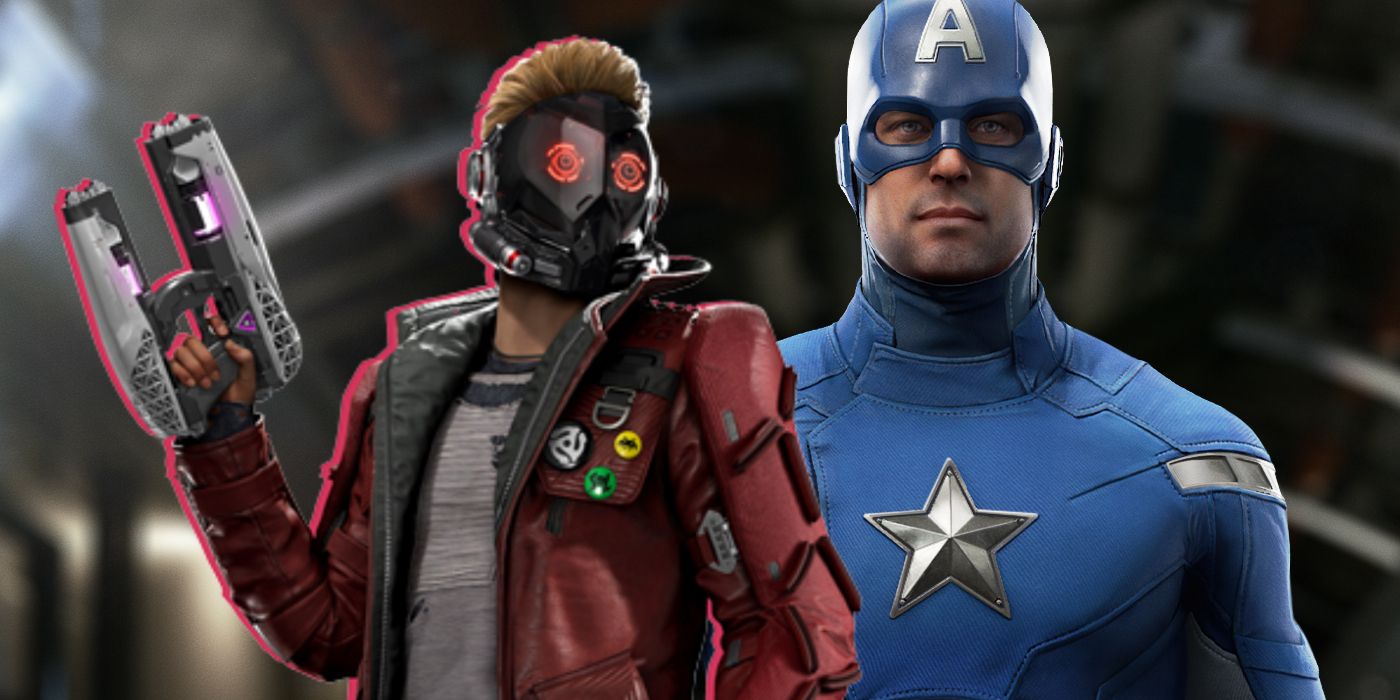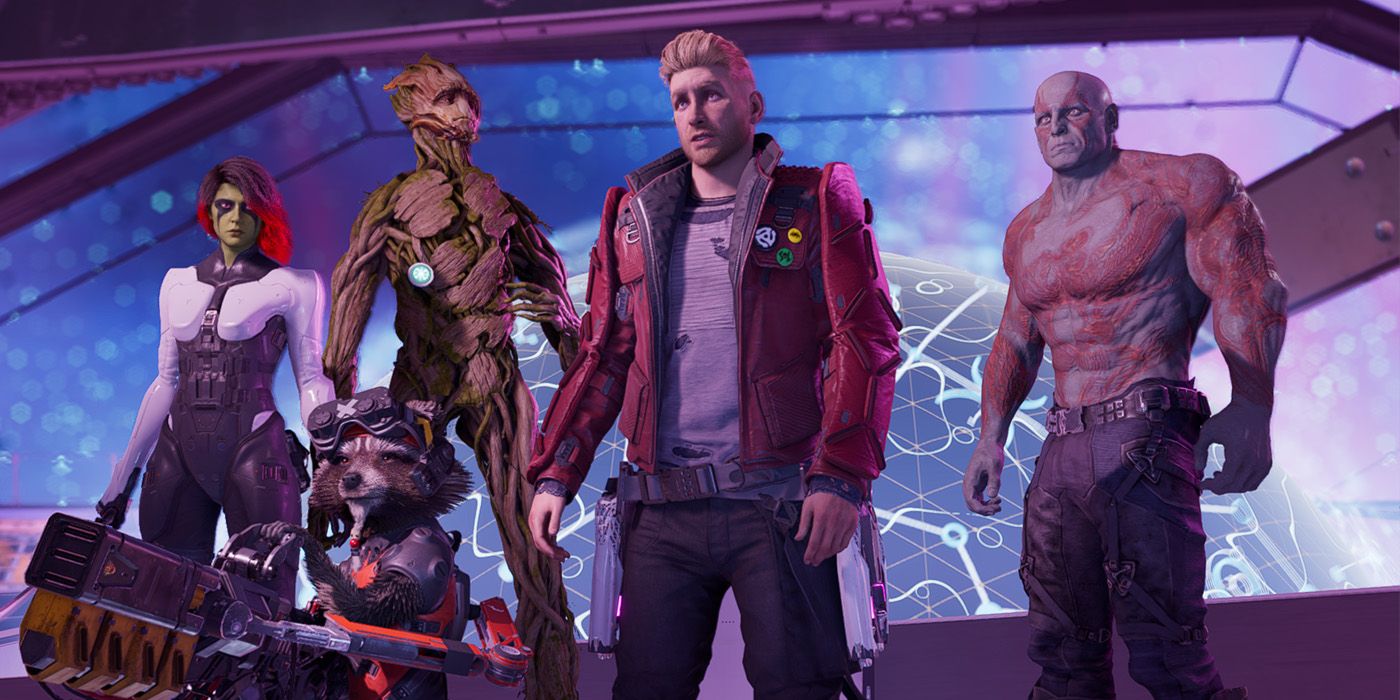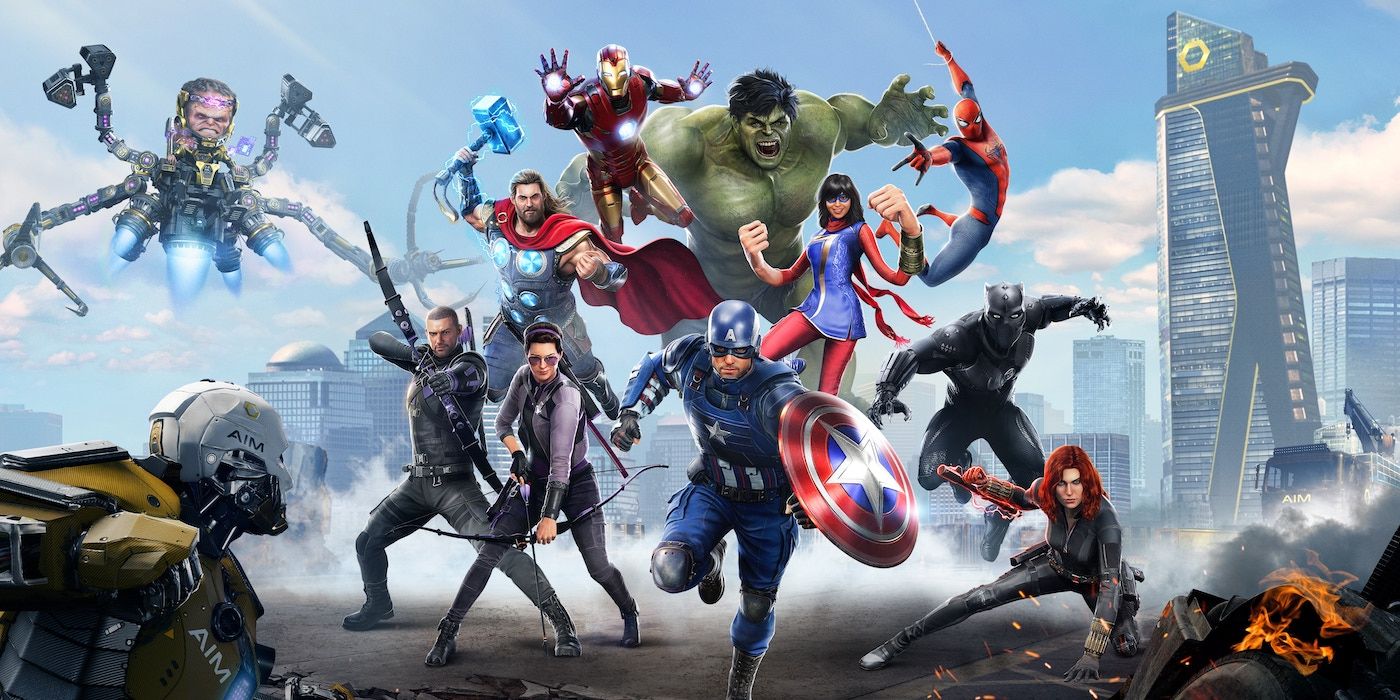The recent Marvel’s Guardians of the Galaxy game was a significant improvement over publisher Square Enix's prior licensed Marvel game, Marvel’s Avengers, but both fall into the trap of chasing the Marvel Cinematic Universe instead of confidently telling their own stories. Marvel’s Avengers featured the same MCU Avengers, with the addition of Ms. Marvel, and the Guardians of the Galaxy game made a similar choice in its core cast. These games are licensed Marvel Comics adaptations, not MCU adaptations, so the voices and likenesses of those characters differed from those seen in films. Both games also opted for realistic character models over a stylized approach. This combination gave the games the vibe of a recast fan film instead of a truly original take on the Avengers or the Guardians of the Galaxy. Given the wealth of comic book history to mine from - especially for Avengers members - choosing to focus on the same heroes as the MCU films was a bad call.
The Square Enix published Marvel games make no secret of their MCU influences. Marvel’s Avengers’ Spider-Man was inspired by MCU Spider-Man, and the game’s DLC has included a series of MCU-inspired character skins. Trying to ride the coattails of the MCU is unnecessary, and ultimately a bizarre choice that weakens both games. Quality comic book-based video games have shown they can establish their own continuities that suit the video game medium. The Batman: Arkham series was among the first modern examples of a licensed game with original world-building done right. Though it shared some voice actors with the ‘90s Batman: The Animated Series, it set itself apart as a wholly different vision of Batman and his world. Insomniac’s Spider-Man games similarly set themselves apart from the MCU with characters like Miles Morales, a version of Spider-Man who made his debut in Marvel’s Ultimate Comics line after the death of that continuity’s Peter Parker.
Diving deeper into the comics lets games set themselves apart from the movies, while putting their own spin on characters. Marvel’s Guardians of the Galaxy introduced Adam Warlock, an important member of some incarnations of the Guardians of the Galaxy team in comics who has not been featured in the MCU. It also put a new twist on Nicholette “Nikki” Gold, a member of the Guardians from the 1970s. Nikki was originally a human from a future version of the Marvel setting, a “Mercurian” who was genetically engineered for survival on Mercury. The game made Nikki a young Kree hybrid and placed her in a central role in the story. By the end of the game, she obtains the original Nikki’s iconic flaming hair albeit through different means. Despite these laudable deeper dives into the comics, the core starting cast was identical to the MCU Guardians team.
Marvel's GOTG & Avengers Teams Missed Out By Copying The MCU
Stepping out of the MCU’s shadow is a good thing for video games. The Marvel’s GOTG Star-Lord is better than MCU Star-Lord, arguably, thanks to the character’s dynamic arc over the course of the game. The decision to make both Square Enix-published Marvel video game’s core teams identical to MCU teams is obvious pandering, and needlessly confusing. The games are clearly not the same continuity as the MCU, but their attempt to harness the MCU’s popularity muddies the waters of their original stories. The GOTG comic books offer many more interesting options outside those seen in the MCU. These range from the original late ‘60s comic, set in a far-future alternate timeline, where Yondu was a founding member of the group, to the 2015 New Guard whose diverse members have included Flash Thompson as Agent Venom, Kitty Pryde of the X-Men, and the character Angela who made her debut in Spawn comics originally.
Clearly Marvel’s Avengers’ did not match Batman: Arkham or Marvel’s Spider-Man in its attempt at building an original continuity. This was partially due to the live service endgame holding back the relatively stronger single-player campaign. It was also held back by its reliance on familiar faces from the MCU. Where there are certainly more interesting choices Marvel’s GOTG could have made in its main cast, Marvel’s Avengers’ initial selection of heroes is almost unforgivable. Dozens of Marvel Comics heroes (and villains) have been members of the Avengers at one time or another; it might be easier to list the Marvel heroes who have not been Avengers members.
The Marvel's Avengers game opted for Black Widow, Captain America, Hulk, Iron Man, and Thor, all characters who were part of the MCU’s initial Avengers team, for its main campaign roster, alongside sole newcomer Ms. Marvel. This excluded less overexposed Avengers like Beast and Spider-Woman, or deeper cuts like Wonder Man and Hercules. The game could have tapped into quirky fan favorites like Machine Man, whose origin is tied with the Monoliths of 2001: A Space Odyssey, or even Squirrel Girl, a hero with infamous off-panel victories that include besting Deadpool, Wolverine, and Doctor Doom. Marvel's Avengers had the entire Marvel library to choose from in assembling its time, but ultimately settled on the same heroes who helped Marvel cement its dominance on the silver screen instead.
Video Games That Copy The MCU Teams Feel Like MCU Fanfiction
Eidos Montréal, the Marvel’s GOTG developers, cited the team’s underdog status as the reason it chose to adapt that particular Marvel comic. It is clear that description applies to the movies more than the in-comic status of the Guardians, as many viewers had low expectations for the original Guardians of the Galaxy film but were pleasantly surprised by the movie. Some could argue the video game is simply inspired by the same 2008 comic version of the Guardians as the MCU movie, a team that featured Star-Lord, Drax, Gamora, Groot, and Rocket. That 2008 team also featured Adam Warlock, who the game did include, as well as Phyla-Vell (one of several characters who have gone by the name Captain Marvel), who the game’s story omitted. It is possible the developers thought that using the familiar team from the films would be a good point of reference for players, but it adds to confusion, as the backstories and personalities of the video game version of the characters differ.
The narrative excels in Marvel’s Guardians of the Galaxy thanks to its character development, but also due to including comic book elements that have not become overplayed through MCU films. The Mad Titan Thanos is already dead at the start of the game’s story, and it instead focuses on the messianic Adam Warlock and his dark alter-ego of Magus. Stepping out of the MCU’s shadow lets Marvel-based games define themselves as unique visions, not cheap copies. They can confidently craft their own continuity instead of giving the impression of weak MCU fanfiction, as with Marvel’s Avengers. The decades of comic lore provide these games countless possibilities to draw from. Falling back on familiar faces from the MCU is uninspired, and ultimately does more harm than good for an original video game adaptation.
Chasing the success and popularity of the MCU holds video games back, and both Marvel’s Avengers and Marvel’s Guardians of the Galaxy should have distanced themselves further from the movies. Hopefully, future Marvel-based games will learn this lesson and look less to the silver screen and more to the comic books for their source material.



